La Dolce Vita Living life the Italian Way
Kamin Mohammadi’s novel, Bella Figura: How To Live, Love, And Eat The Italian Way, documents her journey away from the stresses of life by adopting a new approach. This story illustrates a year in her life on her journey toward self-acceptance.
One of the world’s most famous museums was fifteen minutes from my apartment. The Uffizi was between my bridge and the Ponte Vecchio on the other side of the Arno. At the end of the Ponte Vecchio a long loggia of open arches crawled along the river, its stone legs duplicated in the water. Above the arches was another story, punctured with small windows, an unbroken line that ran from the Uffizi all the way across the river and into the Oltrarno to the massive complex of the Palazzo Pitti. The Vasari Corridor had been constructed to allow the Medici to walk from their palaces on one side of the river to the other. Giuseppe told me that there had originally been butchers along the Ponte Vecchio but the smell of flesh had disturbed the Medici on their promenades along the Vasari Corridor, and so the edict that the Ponte Vecchio should house only jewelers had been issued—this is how it has remained to this day.
The Uffizi palace, unlike the buildings flanking it, jutted out toward the river, displaying three splendid arches set with statues and held upright by classical Doric columns—Vasari’s ode to Etruscan classicism. I could see people pouring through the loggia like an army of busy ants.
I was convinced that Florence was not really a city at all, but a village. The population was less than half a million, and while there were some tourists around now, I knew that the hordes would arrive in the warmer months, when each Florentine would be outnumbered seven to one by foreigners.
Florence might be a village, but a glorious Renaissance village that just happened to produce some of the world’s greatest art and architecture, and invent banking and money in the form of the florin, Europe’s first coin. It invented fashion too—an inevitable product of the Florentine love of both art and commerce. Cloth produced from Tuscan sheep had been so brilliantly washed and dyed in the soft waters of the Arno that Renaissance Florence had become the largest cloth-manufacturing center in Italy. Style and fashion still flow in Florentine veins: Fashion Week was born here in the 1950s, before Milan stole her crown in the 1970s. So a village then, but one that just happened to have people buried in its churches whose names are instantly recognizable: Michelangelo, Galileo, Lorenzo di Medici, Machiavelli, even Lisa Gherardini—the Mona Lisa herself.
Soon after arriving, I had applied for a “Friend of the Uffizi” card, which for an annual fee would give me unlimited entrance to all the state museums without having to book or stand in line. It took me a few days of poking around the Uffizi’s large crowded courtyard and colonnaded outer halls to locate the Friends office. The lady in the office gave me an appointment for three weeks later. I asked why I couldn’t simply make my application then. She looked at me as if I had asked her to resurrect Michelangelo so I could meet him.
“But no, is not possible now,” she said, as if the reasons were obvious. “You must come back on February first. Opening hours from ten until five, but the office is closed between twelve and four for lunch . . .”
The appointed day arrived and the lady grudgingly handed over the card with my name on it. The Uffizi seemed to want to actively discourage people from having easy access, and I couldn’t really blame it. Outnumbered as they are by tourists, perhaps this was just one of the ways in which Florentines fought back against the mass invasion of their city.
Elated by this victory, I popped into the great gallery, skipping happily past the line and presenting my card with a flourish, entering the venerable halls with the same thrill as when blagging my way into London nightclubs when I was seventeen. I wandered the famous corridors, walking into rooms arbitrarily, until I was stopped in my tracks by Botticelli’s enormous painting of the Birth of Venus, shining down golden from the wall. I sank down on the seat in front of it. I had no desire to go anywhere, just to take in every detail, letting the colors, her expression, the light emanating from the painting seep into every bit of me. The healing power of beauty. Wasn’t that what Old Roberto had said—stay and let the beauty heal you?
February had arrived with an extra-cold blast and one day early in the month, I noticed with a shiver that the heating had stopped working. When I met Giuseppe on the street outside the forno that morning, he promised to send me Guido, the old plumber who had one of the workshops on the street—San Niccolò was lined by workshops and artists’ studios, old-fashioned even for Florence. I knew Guido by sight; I saw him every day in Rifrullo talking at the top of his voice to Pavarotti, or on the street shouting out instructions with much gesticulating to his young sidekick. A large round man with white hair and a worn-in face, Guido was a deeply embedded part of San Niccolò life, and now at seven o’clock in the evening he puffed up my stairs tailed by his handsome assistant.
When they rang my doorbell, I was talking to Kicca in London on Skype, the free Wi-Fi having mysteriously failed to switch off as usual. Kicca has been my closest friend since we met in London more than fifteen years ago. Nearly every memory of the past two decades of my life included her—the parties, the boyfriends, the happiness, the tears, the wardrobe crises—she had been there through them all.
Kicca was from Rome, beautiful, black-haired and black-eyed, slim, with an athletic figure and a natural six-pack that never ceased to impress me. She had impeccable taste in everything: her dress sense was artistic, colorful, and elegant, she cooked beautifully and her homes were always gorgeously eclectic shrines to her travels. Kicca displayed the best example I knew of bella figura; way before I had come across the concept, she embodied it.
She had lately discovered another passion: tango. And, irrespective of the fact that she was in her late thirties and had never had any dance training, Kicca had, of course, in her typical way, started dancing professionally on the London stage within months of starting to take lessons. It wasn’t long before her passion drew her to visit Argentina, and on her return she told me she had decided to move to Buenos Aires as soon as she could sell her aparment in London. When she announced her decision to leave, I cried for a month. I could not imagine life without her.
“I wandered the famous corridors, walking into rooms arbitrarily, until I was stopped in my tracks by Botticelli’s enormous painting of the Birth of Venus, shining down golden from the wall”
And then I too was suddenly on the move. To Kicca’s home country, no less. Perhaps I rushed off to Florence so quickly because I couldn’t face seeing Kicca leave. In the end, I left London before she did—Kicca was still busy preparing her move when I arrived in Florence.
Now, as Guido knocked on the door, I kept the video on; she could help me communicate with him. I invited him in, showed him to the kitchen, and pointed him to my laptop, where Kicca’s face filled the screen. His eyebrows shot up when she started to talk to him in Italian and he chuckled. “Ma dai!” he exclaimed. “Guarda Gabriele”—indicating the sidekick—“vieni a guardare . . .”
Gabriele’s dark curly hair was worn a little long, there was an earring in his left ear and muscles rippling under the wintery layers of clothes. He too peered at Kicca and they all started talking at once in the Italian way. Finally, Guido held up an authoritative hand, and Gabriele fell silent while Kicca explained the problem. Off they went to the bathroom to examine the boiler, Guido reappearing after a few minutes. Looking at me, with a wrench in his hand, he explained something to Kicca while Gabriele walked through the kitchen and out of the apartment. Kicca translated for me: Gabriele had been dispatched to the studio to get a spare part that would fix it. In the meantime, Guido was in the mood to chat. I offered him a coffee and a chair. He declined the coffee but sat down gladly in front of Kicca on the computer, leaning into the screen.
He pointed to Kicca’s dance partner, who was busy preparing dinner in the kitchen behind her, and asked if that was her husband and what he was doing. Kicca was laughing too by now, saying to Guido that no, this was not her husband, but Guido would not stop.
“Allora, fidanzato?” I recognized the word for boyfriend, but as she was trying to explain he interrupted her, quizzing her on what he was preparing for dinner, and for a few moments they chatted about food, Guido lamenting Kicca’s misfortune at being stuck in “the land of tasteless vegetables.” Eventually, she told me that he had finally approved her dinner and wanted to know what I was eating tonight.
“He says he is worried you don’t eat properly, darling,” she said, still laughing, as he interjected with dramatic gestures from his seat. “He says you only eat a slice of pizza for lunch—he’s discussed it with Pierguidi the baker . . .” At my protestations, Guido himself addressed me in Italian. “He wants to know what you are going to cook for dinner,” Kicca translated.
“Tell him I can’t cook. I will probably just go to Luigo’s and have some bits and pieces. Or open a can of tuna . . .”
At this Guido grew agitated. He approached my fridge, and, opening it, he pulled out all the salad leaves I had there. Filling the sink with water, he threw in handfuls of different leaves and left them to soak. Then he asked me if I had pasta and a can of tomatoes.
I pointed him to the cupboard, asking Kicca: “What’s he doing?”
“Well, it looks like he is going to cook for you . . .”
“Are you serious?”
Guido turned toward us and told me, through Kicca: “I am going to teach you how to make the most simple and delicious dish of pasta. A beautiful woman like you cannot waste away on cans of tuna! Mamma mia, che peccato!”
I wanted to say that I was hardly in danger of wasting away, but instead I watched him get busy: he smashed cloves of garlic with one big hand clenched into a fist, telling me to open the can of tomatoes, talking all the while as Kicca furiously translated. I asked why he didn’t use the garlic crusher I had found at the back of a drawer—there was no need for Kicca to translate his reaction of horror. When Gabriele returned, I watched them both season and taste the tomato sauce as it simmered, discussing whether it needed more salt or perhaps a pinch more black pepper. The apartment was filled with noise and laughter and fizzing smells, suddenly, atmospherically, Italian. Guido instructed me to toast some pieces of bread, and, pulling them out of the toaster, he cut a clove of garlic in half and rubbed the fat end over the toast, smearing it with a pungent layer of paste. He then cut up a tomato, crushed it onto the toast, leaving traces of pulp, poured on some oil, and sprinkled on some salt.
“Eccolo,” he said, kneeling on the floor, holding out the plate toward me with a flourish with one hand while the other hand clutched his heart. We were all laughing so much that only Guido’s repeated protestations made me eventually reach for a piece of toast. “Yum,” said Kicca across the ether, her face distorting as she came closer to her camera. “Crostini! Typically Tuscan, darling, and oh God, I wish you could give me one.”
I understood Kicca’s envy as soon as I took a bite. Toast had never tasted so good, so sweet, so garlicky, so delicious. I turned to the grinning Guido and offered him the dish. He delicately picked up a small piece with his rough hand. Gabriele too took a slice, and for the first time since they arrived, there was silence as we all crunched and “aahhed” our way through the crostini.
At some point, Gabriele went to the bathroom and fixed the boiler while I filled what looked to me like an unnecessarily large pan full of water at Guido’s insistence.
“Pasta,” Guido explained, leaning over me, “needs a lot of water and space to turn in. This is not too big, even for one portion.”
He saw me reach for the oil to pour into the water and gasped dramatically, holding my arm. “No no no no!” he admonished. He told me that if the pan was large enough for the pasta to move freely in the water, there was no need for oil to stop it from sticking together, just a quick stir when the pasta was first thrown in. He added salt only when the water was boiling. By now Gabriele had joined us in the kitchen, and as Guido and I bent over the stove, I noticed him talking urgently to Kicca, having taken off his jacket, flexing his muscles, striking pose after pose.
“He is asking me if I think he’s handsome.” Kicca couldn’t stop laughing now. “Darling, these two are the most dramatic plumbers I have ever met. They make me miss my country!”
Guido snapped curtly at Gabriele and he stopped posing and got busy draining the lettuce leaves and drying them in a tea towel, the ends of which he held together and swung around to absorb the water. Throwing the leaves into the bowl I gave him, he dressed the salad with oil, the juice of half a lemon, and plenty of salt. He indicated for me to taste—it was delicious, the salad leaves crisp and fresh, the dressing just sour enough. I thanked him and he blushed, placing the salad on the kitchen table. He joined Guido in draining the pasta, the two of them throwing the twists of fusilli into the pan of simmering tomato sauce, Guido stirring it all with a wooden spoon to make sure each piece of pasta was coated with tomato, while Gabriele tore leaves of basil into the mixture.
“The apartment was filled with noise and laughter and fizzing smells, suddenly, atmospherically, Italian”
I fetched a plate and set a place. The men handed me the steaming bowl of pasta, the smell filling my kitchen. They pointed for me to sit down, while I kept repeating “Grazie. Grazie mille!” unable to quite believe what had just happened.
Guido and Gabriele bowed deeply, Guido taking my hand and kissing it. “Now eat immediately, it’s no good cold! We will see ourselves out.”
And with that, the Dramatic Idraulici left me with a home-cooked meal on the table, my radiators fired back to life, and the best laugh Kicca and I had had together in ages.
I decided to try the simple pasta sauce for myself a few nights later. And I managed it okay, by and large, at least after I had put out the fire that flared out of the oil I left on the stove for too long. Throwing in the tomatoes, the flames that exploded from the pan nearly took off my eyebrows. I turned off the heat and flapped at the pan with a tea towel. The fire soon died and, once I had opened all the windows to clear the smoke and wiped up the splattered oil, I managed the rest of the recipe with no further incident, not even overcooking the pasta, which Guido had insisted had to be al dente—with a bite. I may have had to pencil in part of my singed left eyebrow for a week, but I was proud nonetheless of my first home-cooked Italian dish.
Excerpted from Bella Figura: How to Live, Love, and Eat The Italian Way by Kamin Mohammadi. Copyright © 2018 Kamin Mohammadi. Published by Appetite by Random House®, a division of Penguin Random House Canada Limited. Reproduced by arrangement with the Publisher. All rights reserved.
BIOGRAPHY: KAMIN MOHAMMADI
Kamin Mohammadi is an author, journalist, broadcaster and public speaker. Born in Iran, she and her family moved to the U.K. during the 1979 Iranian Revolution. As a journalist she has written for the British and international press, including The Times, the Financial Times, Harper’s BAZAAR, Marie Claire, Mail on Sunday, Condé Nast Traveller (U.K. and Italy), Psychologies, Donna Moderna (Italy), Grazia (Italy), Men’s Health, The Sunday Times (U.K.), The Sunday Times of India, The Mail on Sunday, Virginia Quarterly Review and the Guardian, as well as co-authoring The Lonely Planet Guide to Iran and numerous other travel guide books. Her journalism has been nominated for an Amnesty Human Rights in Journalism award in the U.K., and for a National Magazine Award by the American Society of Magazine Editors in the U.S.
Kamin has authored two books. They are: Bella Figura: How To Live, Love, And Eat The Italian Way (Bloomsbury in U.K., April 2018; Knopf in U.S. May 2018; Appetite Random House in Canada May 2018 and another eight countries so far), and The Cypress Tree: A Love Letter To Iran (Bloomsbury, 2011) which was published in Italy as Mille Farfalle Nel Sole (Piemme Voci, Sept 2013). She contributed an essay to the Italian anthology: Pensiero Madre (Neo Edizione, June 2016). She has spoken on Iranian issues at universities, conferences and peace events, including at New York University in Manhattan, a briefing to NGOs, lobbyists and senators on Capitol Hill. She has appeared at various literary festivals around the world, including the Jaipur Literature Festival 2012, the Bath Literary Festival and the Oxford Literature Festival several times, as well as Asia House London’s Festival of Asian Literature three times. An avid commentator, she has appeared on BBC Radio Four’s Woman’s Hour, Midweek, Four Thought and The World Tonight, BBC World Service’s Outlook and The World Today Weekend, Channel Four Radio’s The Morning Report, Monocle Radio’s Monocle 24 and India’s NDTV. She has appeared in the BBC (television) documentary Iranian Enough? and helped to write and co-present the BBC World Service’s three-part radio documentary Children of The Revolution. She was a major contributor to the BBC Radio Four series Escape from Tehran. She is a regular presenter of BBC R4’s Four Thought.
www.kamin.co.uk
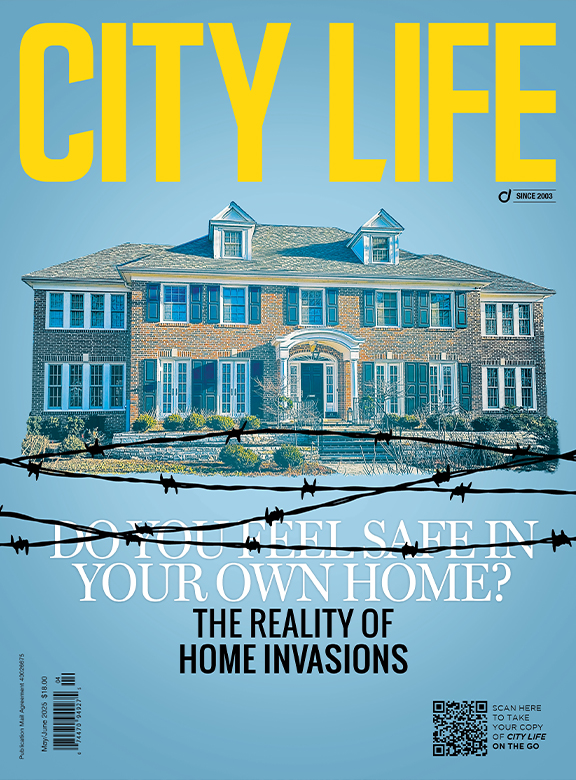






































































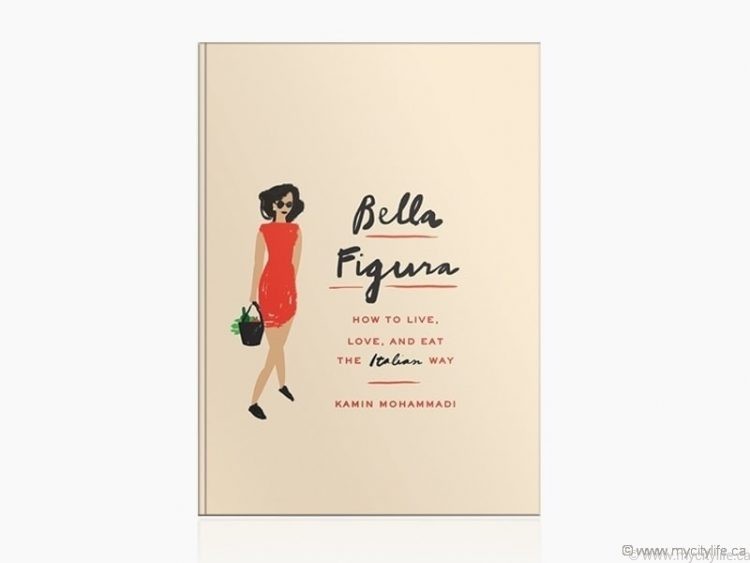
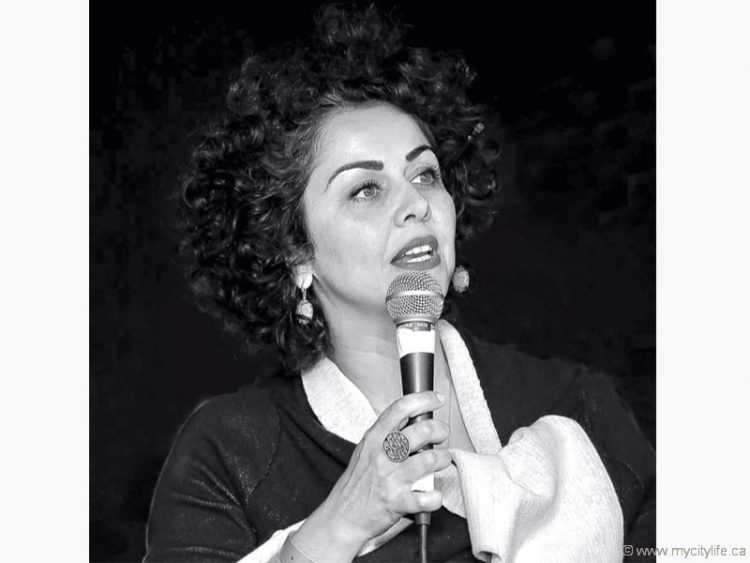
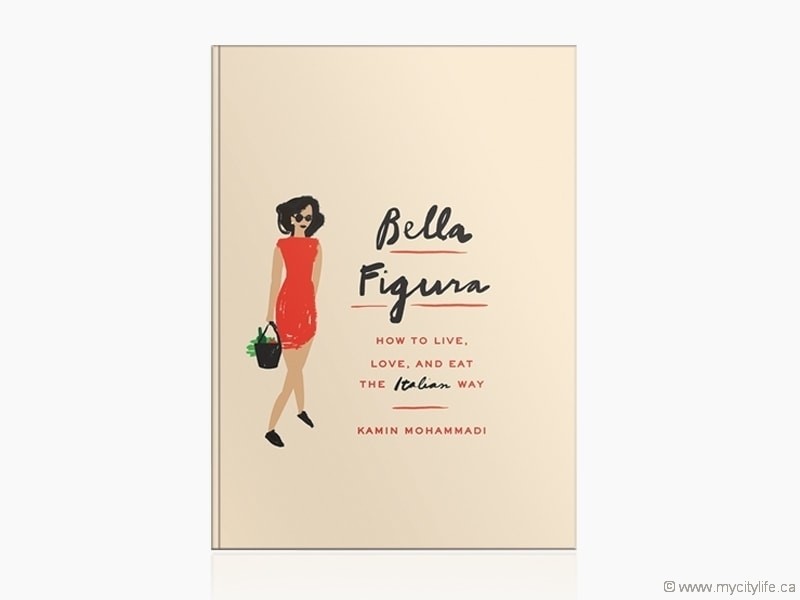



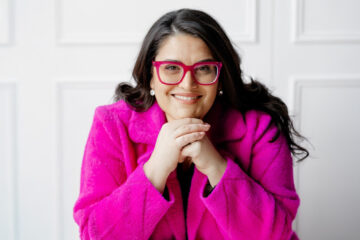

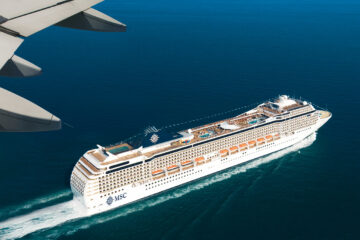
No Comment